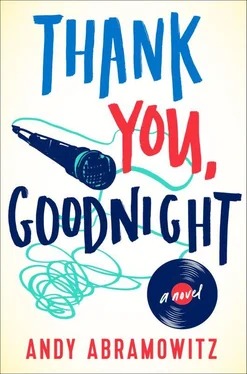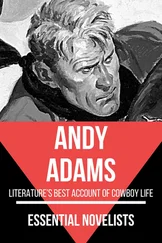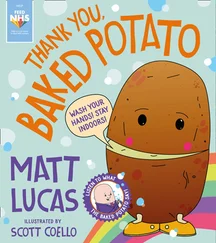She gestured to the couch and lowered herself onto the love seat opposite me, at which point I was reminded of my one brief sojourn on a psychologist’s couch. It was during the band years. The pressures were walling up around me and my moods were vacillating between combative and withdrawn. (I know, poor me.) The day Alaina observed a preconcert tantrum—something about my shirt looking like a woman’s “top”—she connected me with a flaky “shrink to the stars” who, at my first visit, made the mistake of encouraging me to lie down on his sofa, a heavenly velvet recliner. At first, I was worried that this was going to go Ordinary People or, worse, What About Bob? (The doctor did have a passing resemblance to Richard Dreyfuss.) But lying snug in the stillness of that office, lulled by the watercolor of a tomato patch and the pastoral enchantment of a wooden owl, I started thinking that a fair percentage of patients must fall asleep. Next thing I knew, the minute hand had completed a lap around the clock and my cheek was stained with drool. As for the psychiatrist, he was lights out in his chair, notepad and pen resting on his turtleneck. I quietly let myself out and declared myself cured.
I looked at Mack. “How have you been?”
“Fine.” Then she added, “How are you?”
“I’m okay. But since you asked, I guess I’m a little curious as to why you hate my guts.”
“I don’t hate your guts.”
“So, then what? You’re just kind of a bitch now?”
Her jaw tightened, then slowly came an uncomfortable chuckle. I remembered this habit of hers, laughing lightly during moments of confrontation. “I’m not a bitch, Teddy. And I’d rather you didn’t speak to me like that in my own office.”
I stared deep into her. “You’d rather I didn’t speak to you like that in your own office? Jesus, Mack, who are you? It’s me. Remember?”
This Mackenzie was so unlike the Mackenzie I’d known that I was almost worried. Where was the Mack who traded paperbacks and rewatched eighties movies with me on those endless bus rides? The one who sat and talked mindlessly with me at the bar for hours on end while our drummer and guitar player drank down aquariums of crude whisky? The one who got up at a reasonable hour and met me in the hotel lobby for scones?
It didn’t take a person of great perceptiveness to see that this woman was not going to join my band. She wanted nothing to do with me.
“Is this about Arizona?” I asked, seeing no reason not to cut to the heart of it.
“Is what about Arizona?”
“This!”
“I don’t understand,” she said.
I felt a sudden need to tell her now what I’d never gotten a chance to say. That I understood the bitterness. That nothing was her fault. That I didn’t handle things well with her because it was her . Things got weird because I got weird. We should’ve talked.
“All these years, Mack. You’ve carried around bad feelings about me all these years because of one night? The glory days, the music, the world travels, everything we did together—all of that means nothing to you because of one unfortunate incident?”
“Teddy, you’re showing up out of the blue and putting a lot of words into my mouth.”
I shook my head slowly. “I see the way you’re looking at me.”
She fell silent.
“I cared about you, Mackenzie. I always have.”
“I didn’t think it would be this strange to look you in the eye,” she said. “Looking at you is like looking through a keyhole into a house I used to live in.”
She stared into her lap. The air in the room grew heavy.
“I know things got complicated between us, but surely you don’t hate me,” I said softly. “Do you?”
“Of course I don’t hate you.” She sighed. “Things just ended on a down note and—”
“No,” I interrupted. “Let’s try it again. Surely , you don’t hate me.”
She squinted quizzically at me for a moment, then a smile bloomed. “I don’t hate you. And don’t call me Shirley.”
“Thank you. That’s all I was looking for. You can’t hate someone with whom you’ve watched Airplane! a thousand times.”
At last she graced me with that easy laugh, the one I’d been waiting a lifetime to hear, all the tension in the room drained away.
“I’m sorry,” she said. “I’ve got a lot on my mind at the moment.”
“You don’t owe me any apologies.”
“I didn’t know what you were up to in coming here, especially this stunt of trying to surprise me at my office. I mean, why didn’t you just call and talk to me?”
“I was scared. You’re scary.”
“Maybe this is all because of Arizona. I’ve always wondered if somehow our episode there brought everything to an end. Your marriage, the band. It’s irrational, I know, but the whole operation did seem to fall apart after that.”
If only she knew what it really was. It was the handy truth that Atomic Somersault was thirteen tracks of who cares because it conveniently explained the empty auditoriums, the universal deterioration of interest in our music, and ultimately, the decision to walk away. It also cloaked the other truth: that we might’ve been rescued from our middling, pedestrian album if I hadn’t steered us away from a prime opportunity.
But that was why I was here. To make all of it right.
“Mack, the band didn’t end because you and I slept together. You should know that because you’re a sex therapist. The band ended because our luck ran out. You should know that because you’re a musician.”
We then dove into small talk, compressing into bullet points the notable events, or nonevents, of our lives since Tremble’s fizzle. She told me she was happy. She had neither a spouse nor kids and offered no good explanation for how she found herself in this line of work. “Nothing else appealed to me,” she said, still mystified by her own choice. “Maybe it was that heavy diet of Jane Austen and the whole scandalousness of sexual repression.”
As for me, I told her that, all in all, I had little to complain about and that I was more or less the same son of a bitch I was ten years ago.
“Are you still with Sara?” she asked.
“I am.”
“That’s terrific, Teddy.” She seemed genuinely pleased. “Did you guys get married?”
“No. Not married.”
“What’s wrong with you? Sara’s a catch. You should marry that girl.”
“What kind of therapist says, ‘What’s wrong with you?’ ”
“You’re not my patient.”
Then I made a crude two-handed air bass and asked if she still played. She nodded. Late at night, weekend afternoons with the windows open—those were her favorite times to jam. “I still know all our songs,” she bragged. “And I haven’t lost a step with Disraeli Gears and Physical Graffiti .”
I grinned inwardly. At least that puzzle piece was wedged into place.
“How about you?” she asked. “Are you still at it?”
“For a long time, no,” I replied, averting my eyes. “I decided the healthier course of action was to move on.”
“That’s surprising. Maybe you shouldn’t have given up so easily. Maybe none of us should have.”
There was such promise in that sentiment. Maybe she too had regrets, unfinished business ripe for revisiting. Yet at the same time, I hoped she hadn’t spent the years pining for a past that I’d single-handedly derailed. There was an elephant in the room, and as usual, it was me. I always seemed to be the elephant these days. I would’ve so much preferred to have been a giraffe. The elephant remembers; the giraffe lifts his head and forgets.
Mack regarded the clock on the wall and said, “How long are you in town for?” Before I could formulate a response consistent with this ruse of a visit, she added, “Maybe we can have dinner tonight. It’d be nice to catch up a little more. I’m unexpectedly not nauseated by the sight of you.”
Читать дальше












